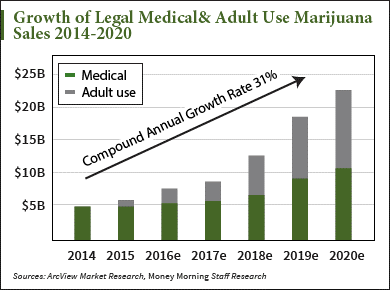Ok. E' caduto il governo. Perchè? Perchè non vogliono legalizzare la cannabis.
Guardiamo i dati. La povertà alla quale questa classe politica ci ha portato, è frutto del loro arricchimento. Che si è fondato, tra le tante balle, che la cannabis non va legalizzata.
Ormai neppure più tutti i berlusconiani sono contro la legalizzazione. E' facile trovare in giornali di destra, titoli a favore della cannabis, sostenuti da idee economiche come quella portata da alcuni premi nobel dell'economia. Esistono ancora dei sostenitori del libero mercato e della libertà individuale. Insomma, non sono tutti fascisti a destra.
Dopo «un quindicennio perduto», il Paese «soffre oggi di una debolezza superiore all’atteso» sottolineano da Viale dell’Astronomia ricordando come il contesto «resta molto difficile» con «tutti gli indicatori qualitativi al ribasso».
Ancora il sole24ore
Confindustria: Italia ferma 15 anni, altri crescono
«Non riusciamo a schiodarci dalla malattia della bassa crescita di cui soffriamo dall’inizio degli anni Duemila» avverte il capo economista di Confindustria, Luca Paolazzi. I dati Csc mostrano come «prima, durante e dopo la Grande Recessione (in Italia più intensa e più lunga) si è accumulato un distacco molto ampio» con altri Paesi Ue. Tra 2000 e 2015, ricorda Confindustria, il Pil è aumentato in Spagna del 23,5%, Francia +18,5%, Germania +18,2%. In Italia è «calato dello 0,5%» e con le dinamiche in corso i gap aumentano oggi «ancor più rapidamente».
Dall'Istat: I NUOVI CONTI NAZIONALI IN SEC 2010 Innovazioni e ricostruzione delle serie storiche (1995-2013), “Le modifiche connesse al superamento delle riserve europee sull’implementazione del Sec 95 hanno contribuito alla revisione per 0,8 punti percentuali. Di queste, la modifica con il maggior impatto (1,0 punti percentuali) riguarda l’inclusione di alcune attività illegali tra l’economia non osservata.”
Scendendo nel dettagli di questa valutazione economica emergono alcuni dati interessanti elaborati dall’ufficio Statistico.
- “l’inclusione delle importazioni illegali di droga e tabacco di contrabbando ha inciso per 0,2 punti sulla revisione complessiva”
- “La spesa per consumi finali delle famiglie ha subito una revisione al rialzo del 4%, spiegata per 1,6 punti percentuali dalle riserve (quasi interamente connessa all’inclusione dell’economia illegale”
Avete mai sentito Renzi parlare di "riserve da parte dell'europa?"Di 13 miliardi di flessibilità?Indovinate un pò di che flessibilità parla quando fa riferimento a quei numeri?Al mercato della cannabis!
Sempre nella nota informativa: "La componente più rilevante tra le tre attività illegali ora misurate dai conti nazionali riguarda la commercializzazione di droga, la quale, in termini di valore aggiunto, è valutata nel 2011 in 10,5 miliardi di euro.
....
Il valore aggiunto derivante da attività illegali è il risultato di una produzione valutabile in circa 16 miliardi a fronte della quale si stima un ammontare di costi intermedi pari a 1,7 miliardi; questi ultimi generano, a loro volta, un valore aggiunto di 1,2 miliardi connesso alla produzione di beni e servizi legali indotta da attività illegali (Prospetto 4). Pertanto, la stima delle attività illegali, comprensiva dell’indotto, comporta un’integrazione di valore aggiunto nei conti pari a 15,5 miliardi di euro, con un’incidenza sul nuovo livello del Pil pari, nel 2011 allo 0,9%. "
Se si confrontano i dati di confindustria, con le stime pil dell'Istat con le conseguenze delle scelte politiche sul tema cannabis, emerge un dato "drogato". Eh si. I dati italiani non sono attendibili. La politica italiana ha nascosto all'Europa, un business ,da 13 miliardi di euro l'anno, che avrebbe potuto portare l'italia a crescere al passo di Spagna, Germania e battere con orgoglio i cugini francesi.
Guardiamo i dati. La povertà alla quale questa classe politica ci ha portato, è frutto del loro arricchimento. Che si è fondato, tra le tante balle, che la cannabis non va legalizzata.
Ormai neppure più tutti i berlusconiani sono contro la legalizzazione. E' facile trovare in giornali di destra, titoli a favore della cannabis, sostenuti da idee economiche come quella portata da alcuni premi nobel dell'economia. Esistono ancora dei sostenitori del libero mercato e della libertà individuale. Insomma, non sono tutti fascisti a destra.
Ma torniamo alle dimissioni del premier. Questo governo, che da circa due anni ha incarico la richiesta di autorizzazione alla coltivazione alla cannabis, non si è ancora espresso.
Da un punto di vista economico quanto può avere danneggiato l' Italia?
Ebbene, circa il 20% del pil
Ancora il sole24ore
Confindustria: Italia ferma 15 anni, altri crescono
«Non riusciamo a schiodarci dalla malattia della bassa crescita di cui soffriamo dall’inizio degli anni Duemila» avverte il capo economista di Confindustria, Luca Paolazzi. I dati Csc mostrano come «prima, durante e dopo la Grande Recessione (in Italia più intensa e più lunga) si è accumulato un distacco molto ampio» con altri Paesi Ue. Tra 2000 e 2015, ricorda Confindustria, il Pil è aumentato in Spagna del 23,5%, Francia +18,5%, Germania +18,2%. In Italia è «calato dello 0,5%» e con le dinamiche in corso i gap aumentano oggi «ancor più rapidamente».
Dall'Istat: I NUOVI CONTI NAZIONALI IN SEC 2010 Innovazioni e ricostruzione delle serie storiche (1995-2013), “Le modifiche connesse al superamento delle riserve europee sull’implementazione del Sec 95 hanno contribuito alla revisione per 0,8 punti percentuali. Di queste, la modifica con il maggior impatto (1,0 punti percentuali) riguarda l’inclusione di alcune attività illegali tra l’economia non osservata.”
Scendendo nel dettagli di questa valutazione economica emergono alcuni dati interessanti elaborati dall’ufficio Statistico.
- “l’inclusione delle importazioni illegali di droga e tabacco di contrabbando ha inciso per 0,2 punti sulla revisione complessiva”
- “La spesa per consumi finali delle famiglie ha subito una revisione al rialzo del 4%, spiegata per 1,6 punti percentuali dalle riserve (quasi interamente connessa all’inclusione dell’economia illegale”
Avete mai sentito Renzi parlare di "riserve da parte dell'europa?"Di 13 miliardi di flessibilità?Indovinate un pò di che flessibilità parla quando fa riferimento a quei numeri?Al mercato della cannabis!
Sempre nella nota informativa: "La componente più rilevante tra le tre attività illegali ora misurate dai conti nazionali riguarda la commercializzazione di droga, la quale, in termini di valore aggiunto, è valutata nel 2011 in 10,5 miliardi di euro.
....
Il valore aggiunto derivante da attività illegali è il risultato di una produzione valutabile in circa 16 miliardi a fronte della quale si stima un ammontare di costi intermedi pari a 1,7 miliardi; questi ultimi generano, a loro volta, un valore aggiunto di 1,2 miliardi connesso alla produzione di beni e servizi legali indotta da attività illegali (Prospetto 4). Pertanto, la stima delle attività illegali, comprensiva dell’indotto, comporta un’integrazione di valore aggiunto nei conti pari a 15,5 miliardi di euro, con un’incidenza sul nuovo livello del Pil pari, nel 2011 allo 0,9%. "
 |
| (Prospetto 4) |
L' uno per cento del pil che il mercato della cannabis ha sottratto ai dati ufficiali è allarmante e andrebbe messo in regola. Come? legalizzando la cannabis e dichiarando il mercato aperto e libero all'impresa.
Questa è una battaglia per lo sviluppo economico e la lotta alla povertà.
Istat, un residente su quattro in Italia è a rischio povertà o esclusione sociale: al Sud quasi il 50%
L' incidenza di 1,7 punti percentuali annui, per 15 anni, avrebbe reso l'italia più ricca, semplicemente facendo una somma aritmetica, di 25.5 punti percentuali di incidenza. Divenendo la locomotirice d'europa.
Ma la cannabis non è mai stata legale. E dunque oggi siamo poveri e (in)felici.
Ma queste argomentazioni potrebbero essere troppo tecniche. Perciò l' economia, per rendersi più accessibile, ha spiegato il pil come il reddito dello stato e, semplificando, la crescita del pil come la crescita del reddito del cittadino. Significa che 25.5 punti di pil persi, è il 25% perso nella crescita del reddito medio di un cittadino italiano. L' italiano è in media più povero. ora si può dire per causa della repressione di un mercato illegale.
L' Italia con la cannabis legale? Lo stato più potente d'europa.
Istat, un residente su quattro in Italia è a rischio povertà o esclusione sociale: al Sud quasi il 50%
L' incidenza di 1,7 punti percentuali annui, per 15 anni, avrebbe reso l'italia più ricca, semplicemente facendo una somma aritmetica, di 25.5 punti percentuali di incidenza. Divenendo la locomotirice d'europa.
Ma la cannabis non è mai stata legale. E dunque oggi siamo poveri e (in)felici.
Ma queste argomentazioni potrebbero essere troppo tecniche. Perciò l' economia, per rendersi più accessibile, ha spiegato il pil come il reddito dello stato e, semplificando, la crescita del pil come la crescita del reddito del cittadino. Significa che 25.5 punti di pil persi, è il 25% perso nella crescita del reddito medio di un cittadino italiano. L' italiano è in media più povero. ora si può dire per causa della repressione di un mercato illegale.
L' Italia con la cannabis legale? Lo stato più potente d'europa.













